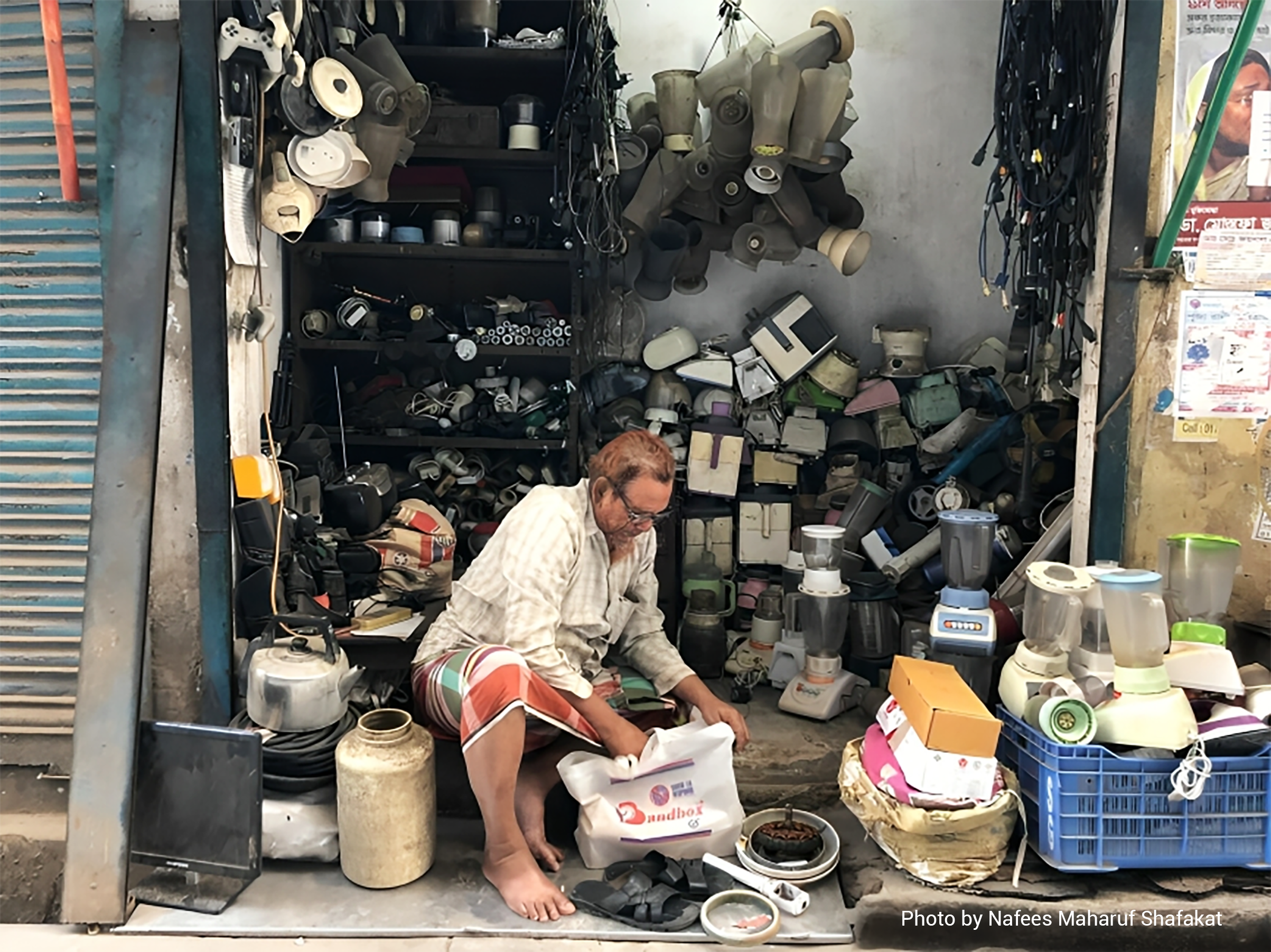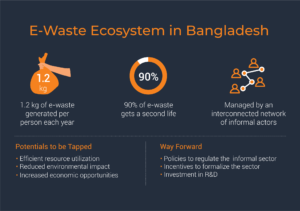
According to The Global E-waste Monitor 2020, Bangladesh generates 1.2 kg of per capita e-waste/year, which is less than its neighboring countries like India (2.4 kg per capita/year) and Malaysia (11.1 kg per capita/year). However, Bangladesh’s e-waste management industry has an effective e-waste management system built from the ground up by an intricate network of informal stakeholders. By tireless collaboration among each other, these actors are transforming waste into a thriving circular economy.
The Potential of the E-Waste Sector
In a recent study, Innovision Consulting found that the e-waste sector in Bangladesh is handled by an interlinked network of retailers, repairers, collectors, wholesalers, parts wholesalers, and recyclers. Most of these actors operate informally without any government supervision. But through the combined effort of these actors, almost 90% of the e-waste circulating in this sector finds a second life, either repurposed, repaired, or recycled as raw material. This demonstrates the remarkable potential of informal networks to drive circularity in e-waste management in various ways. Firstly, the interlinked network of the involved stakeholders demonstrates a collaborative and interconnected system through which the maximum portion of e-waste is reintroduced into the system, either as functional products or as raw materials. This indicates efficient resource utilization with a circular economy approach. Secondly, by repurposing, repairing, or recycling e-waste, the informal network helps minimize the environmental impact associated with electronic waste disposal. Informal recycling, when done responsibly, can be an effective way to reduce the harmful effects of improper e-waste disposal, such as soil and water contamination from hazardous materials. Lastly, the informal sector’s involvement in e-waste management creates economic opportunities for various actors in the network, including retailers, repairers, collectors, wholesalers, and recyclers.

Existing Challenges in the Sector
However, the current e-waste management system’s informal setup poses some significant challenges. Inadequate regulations from the government create loopholes for substandard practices. For instance, collectors do not get a fair price for traded products from households or repairers and often collect stolen goods from different sources and face legal repercussions from law enforcement authorities. On the other hand, repairers struggle with low-quality and counterfeit spare parts, hindering their ability to offer lasting solutions which subsequently generates more e-waste. Global inflation and shrinking purchasing power are adding further constraints to this informal structure.
The Way Forward
To improve the e-waste management system in Bangladesh, the government can introduce policies to regulate the informal sector and provide incentives to formalize the sector. This can help to ensure that the actors in the informal sector receive fair prices for their services and products and that the quality of the services and products is improved. Additionally, the government can invest in research and development to improve the quality of spare parts and promote the use of eco-friendly materials in the production of electronic devices.
Author: Sayera Sun-Um Nusaka, an Associate in the Economic Growth Portfolio at Innovision Consulting